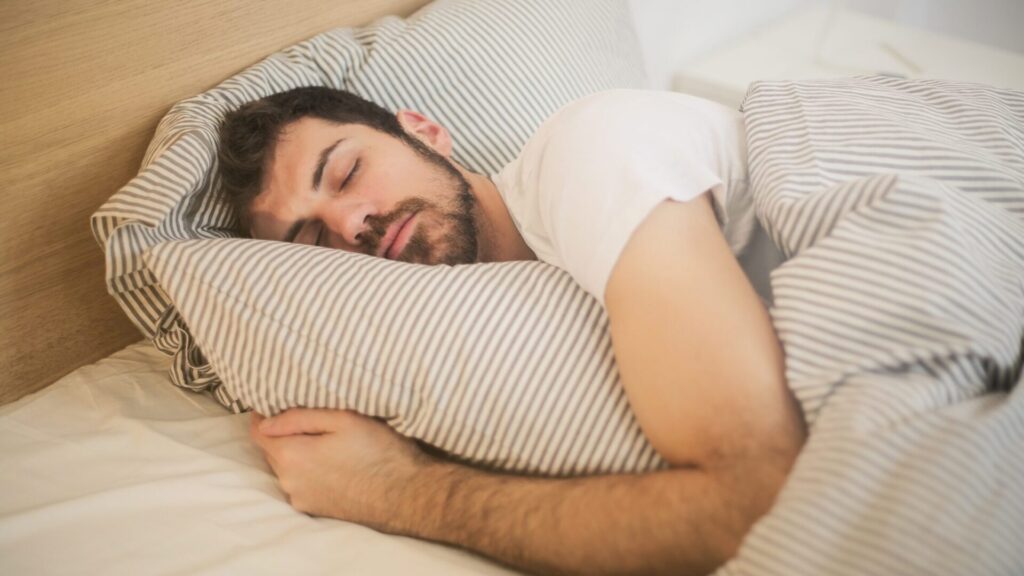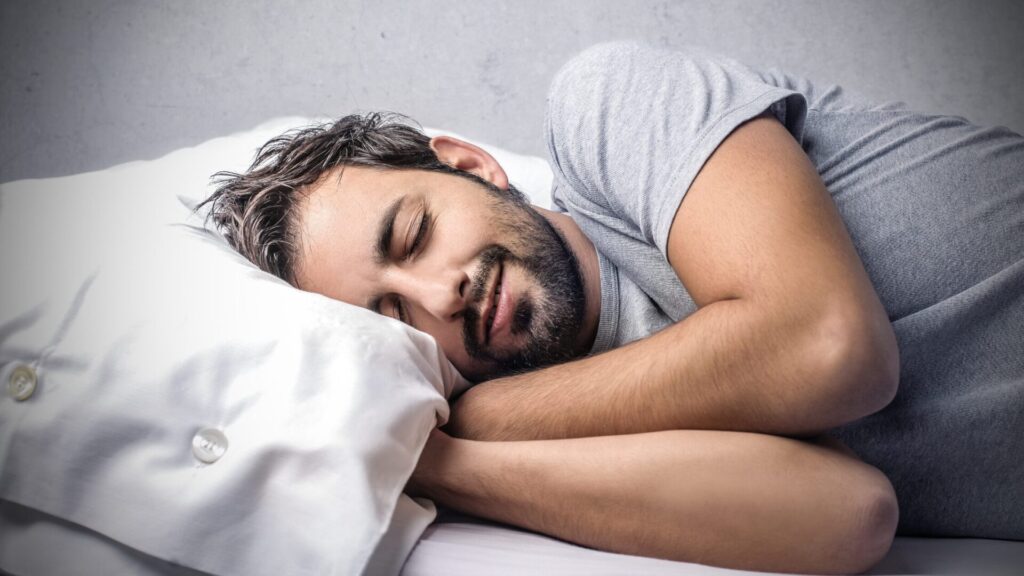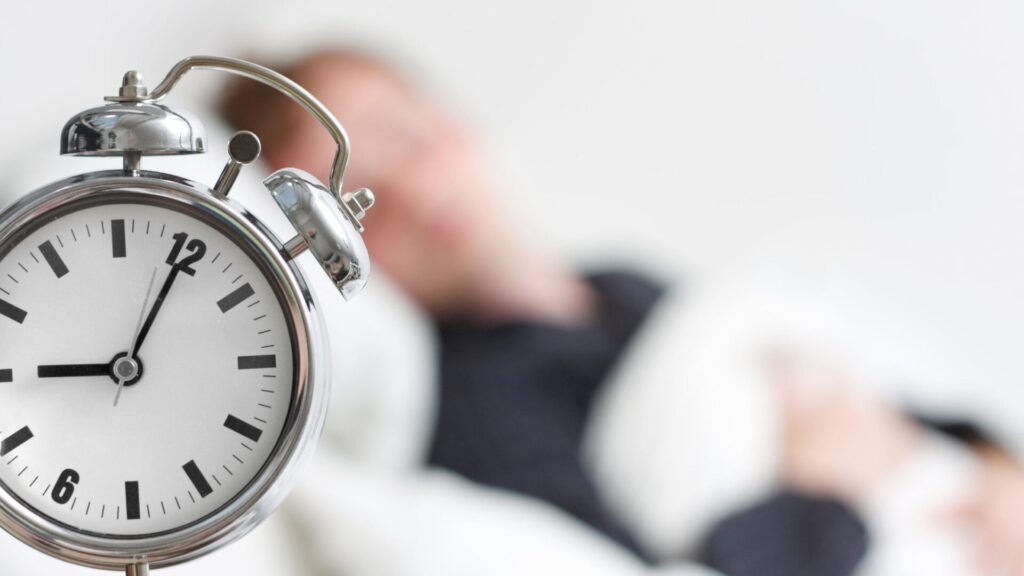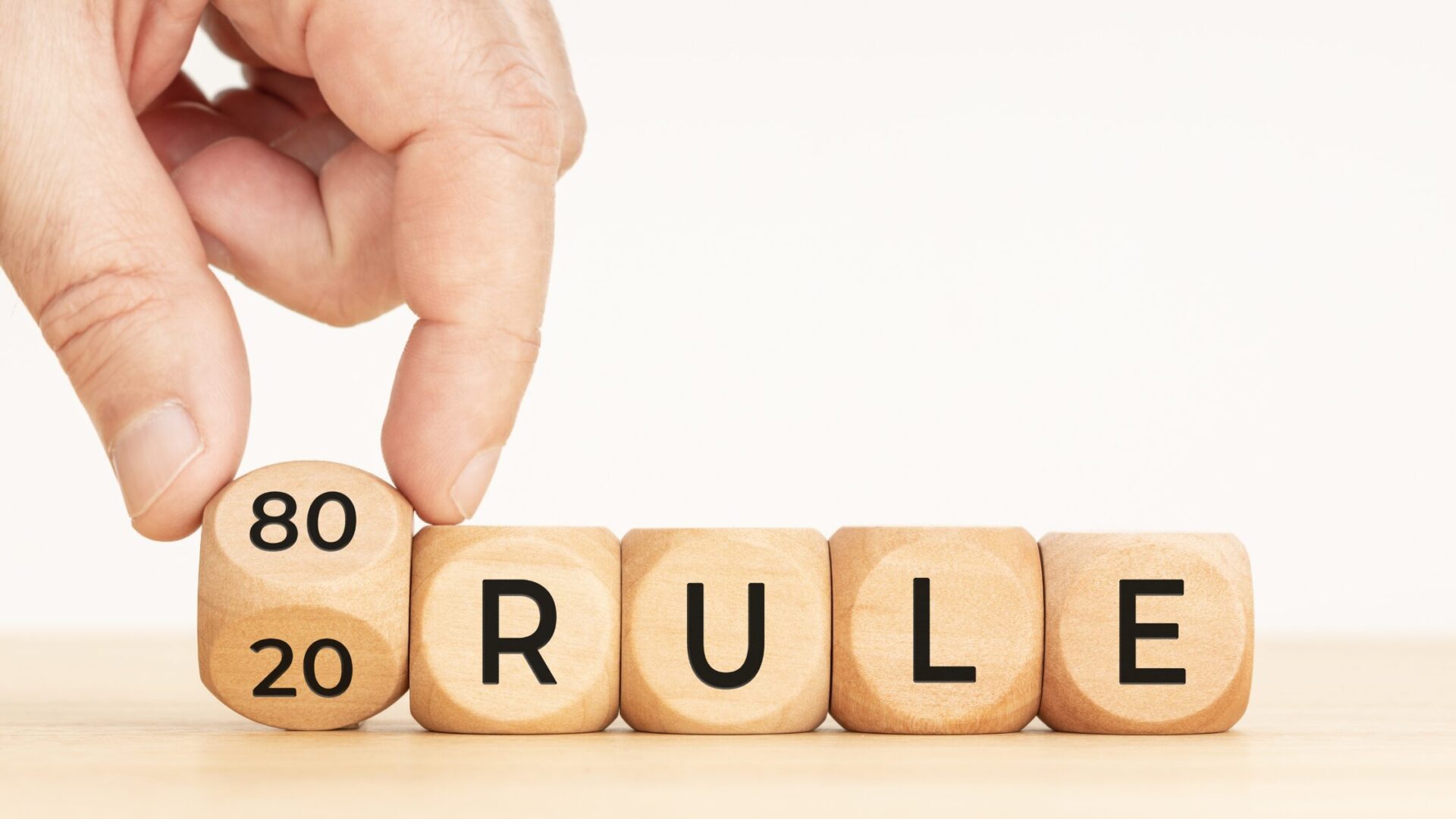The Impact of Sleep on Your Fitness Routine. Tips to improve your sleep pattern
Introduction
Sleep plays a crucial role in your fitness routine, impacting everything from muscle recovery to energy levels for your next workout. Despite its importance, there are several misconceptions about the relationship between sleep and fitness, such as the belief that less sleep means more time for exercise, or that a good workout can substitute for a good night’s sleep. In reality, adequate rest is as vital as the exercise itself, forming a symbiotic relationship where each influences the efficacy of the other.
- Muscle Recovery: During sleep, the body repairs muscles, making rest an essential part of any fitness routine.
- Energy Levels: Adequate sleep ensures you have the energy needed for optimal performance during your workouts.
- Common Misconceptions:
- One prevalent myth is that sacrificing sleep for early morning workouts will lead to better fitness outcomes, ignoring the detrimental effects of sleep deprivation on physical health and exercise performance.
- Another is the idea that intense exercise late in the evening can make up for poor sleep quality, overlooking the fact that such activities can actually disrupt sleep patterns.
How Sleep Affects Muscle Recovery

The Role of Sleep in Muscle Repair and Growth
During sleep, our bodies enter a state of recovery and regeneration, critical for muscle repair, growth, and strengthening. This process is fueled by several physiological mechanisms that occur predominantly during the deep phases of sleep.
- Protein Synthesis: Sleep enhances protein synthesis, the process by which cells create new proteins to repair and build muscle tissue. Research has shown that inadequate sleep can significantly reduce the body’s ability to perform protein synthesis, hampering muscle recovery and growth.
- Human Growth Hormone (HGH) Release: A significant portion of the daily human growth hormone (HGH) secretion occurs during deep sleep. HGH plays a vital role in muscle growth, fat metabolism, and the repair of muscle tissues. Studies have indicated that decreased sleep can lead to reduced levels of HGH, negatively affecting muscle recovery.
- Reduction of Cortisol Levels: Sleep helps in managing cortisol, a stress hormone that, at elevated levels, can be catabolic to muscle tissue, potentially leading to muscle breakdown. Proper rest can ensure that cortisol levels are kept in check, supporting muscle recovery and overall fitness outcomes.
Importance of REM Sleep
Rapid Eye Movement (REM) sleep, the sleep stage associated with dreaming, is crucial for cognitive functions, but it also plays a role in physical health, including muscle recovery. During REM sleep, the body can increase protein synthesis further, reinforcing the muscle repair and growth initiated in the deep stages of sleep.
Understanding these physiological processes highlights the importance of obtaining sufficient, quality sleep as an integral component of any fitness routine. To maximize muscle recovery and growth, prioritizing sleep is as essential as the workouts themselves. For more insights into optimizing sleep for fitness, resources like the Sleep Foundation and [National Institutes of Health (NIH)](https://www.nih.gov/) offer comprehensive information and tips.
Sleep’s Role in Performance and Endurance
How Sleep Deprivation Impacts Strength

- Reduced Muscle Strength: Lack of sleep can lead to a decrease in muscle strength, impacting one’s ability to perform high-intensity workouts and lift weights effectively. This is because sleep deprivation affects the body’s muscle repair process, essential for strength training recovery.
- Delayed Reaction Times: Insufficient sleep may result in slower reaction times, which can diminish performance in sports that require quick reflexes and decision-making.
Impact on Endurance
- Decreased Cardiovascular Performance: Endurance activities heavily rely on the cardiovascular system’s efficiency. Sleep deprivation can compromise heart rate variability and reduce oxygen uptake efficiency, negatively affecting endurance levels.
- Energy Conservation: The body’s inability to sufficiently rest can lead to faster depletion of energy reserves during physical activity, making it harder to sustain long periods of exercise.
The Role of Sleep in Motivation
- Mental Fatigue: A lack of sleep can increase perceptions of effort during exercise, making workouts feel more challenging and less enjoyable, subsequently affecting motivation.
- Mood and Willpower: Sleep significantly influences mood and willpower, both of which are crucial for the consistency and enthusiasm needed to adhere to a fitness routine. The irritability and decrease in mood from poor sleep can make the prospect of exercising seem less appealing.
Mental Health, Mood, and Motivation

The intersection between sleep, mental health, and physical fitness is both significant and complex. Adequate sleep contributes to better mental health, enhancing mood and motivation, which are essential for maintaining an active, health-oriented lifestyle.
- Enhanced Cognitive Function: Sleep is fundamental for cognitive processes such as memory, learning, and decision-making. These cognitive functions are directly linked to motivation and the ability to set, pursue, and achieve fitness goals.
- Mood Regulation: Sleep has a profound impact on mood regulation. Insufficient sleep can lead to increased stress, anxiety, and depression, all of which detrimentally affect one’s motivation to engage in physical activity. Conversely, adequate sleep helps in maintaining a positive mood, thereby increasing the likelihood of pursuing fitness activities.
- Stress and Anxiety Reduction: Exercise is known for its role in reducing stress and anxiety levels, but without enough sleep, the body’s stress hormones, like cortisol, remain elevated, making it more challenging to find the mental energy and motivation for physical activity.
- Impact on Fitness Goals: Ultimately, the state of one’s mental health can significantly influence fitness motivation and performance. A well-rested mind is more adept at overcoming the psychological barriers to exercise, such as procrastination, lack of confidence, and hesitation due to perceived effort.
Tips for Improving Sleep Quality

Enhancing sleep quality is crucial for both mental and physical well-being. Implementing practical strategies can significantly improve your sleep hygiene, diet, and relaxation, leading to better overall health. Here are some effective tips:
Sleep Hygiene Practices
- Establish a Consistent Sleep Schedule: Going to bed and waking up at the same time every day can help regulate your body’s internal clock and improve the quality of your sleep. Sleep Foundation guidelines recommend this as a top priority.
- Create a Restful Environment: Ensure your bedroom is conducive to sleep by keeping it cool, dark, and quiet. Consider using earplugs, white noise machines, and blackout curtains to minimize sleep disruptions.
- Limit Screen Time: The blue light emitted by screens can interfere with your ability to fall asleep. Limit exposure to screens at least an hour before bedtime, and use devices with night settings to reduce blue light. Harvard Health Publishing provides insights into the impact of blue light on sleep.
Diet and Sleep
- Mind Your Diet: Avoid heavy or large meals within a couple of hours of bedtime. Spicy or acidic foods can cause stomach trouble and heartburn, which can disrupt sleep.
- Reduce Caffeine and Nicotine: Both are stimulants and can interfere with falling asleep. Try to limit their intake, especially in the latter part of the day.
- Limit Alcohol Intake: Although alcohol might help you relax, it interferes with your sleep cycle once you’re asleep. Mayo Clinic’s advice on alcohol and sleep provides additional detail.
Relaxation Techniques before Bed
- Engage in Relaxation Practices: Techniques such as deep breathing, meditation, or gentle yoga can prepare your body for sleep. Resources like Headspace offer guided meditations specifically designed for sleep.
- Take a Warm Bath or Shower: A warm bath or shower can help to relax your muscles and lower your body temperature, signaling to your body that it’s time to wind down.
- Read or Listen to Soft Music: Engaging in calming activities such as reading a book or listening to soft music can help ease the transition into sleep.
Integrating Sleep Into Your Fitness Plan
To align sleep routines with workout schedules for optimal performance and recovery, several strategies can be incorporated into your fitness plan. Harmonizing sleep and exercise schedules not only enhances the quality of rest but also maximizes the benefits gained from physical activities.
Synchronizing Sleep and Workout Times
- Plan Workouts for Your Personal Energy Peak: Understanding your body’s natural rhythms can help in scheduling workouts when you’re most energized, which for many may be in the morning or late afternoon. Aligning exercise to these times can improve performance and ensure a better night’s sleep.
- Avoid Late Night High-Intensity Workouts: Engaging in stimulating activities close to bedtime can elevate your heart rate and make it difficult to fall asleep. Aim to complete high-intensity workouts at least 3 hours before going to sleep to avoid disruption to your sleep cycle.
Utilizing Exercise to Improve Sleep Quality
- Regular Physical Activity: Consistent exercise contributes to a more restful sleep. Even light activities such as walking can improve sleep quality, but it’s vital to maintain regularity to establish a healthy sleep-exercise balance.
- Yoga and Mindful Movement: Incorporating practices like yoga or gentle stretching in the evening can serve as a transitional activity to ease the body into a state of relaxation, making it easier to fall asleep.
Recovery and Rest Days
- Prioritize Rest Days: Active recovery or complete rest days are crucial in any fitness routine to allow the body to heal and recover. These days should be used to focus on sleep quality and ensure the body is adequately rested.
- Sleep as Part of Recovery: Sleep should be considered a key component of post-workout recovery. Extending your sleep duration by an hour or so after intensive training days can significantly enhance muscle recovery and growth.
Monitoring Sleep Patterns
- Track Sleep and Activity Levels: Utilizing wearables or sleep-tracking apps can provide insights into how your workout routine impacts your sleep patterns. This data can help you adjust your exercise timing and intensity to optimize sleep quality.
- Adjusting Workouts Based on Sleep Quality: If you notice a trend of poor sleep following certain workouts or at specific times, consider adjusting your fitness plan. This may involve switching to lighter exercises or changing your workout schedule to improve sleep and overall well-being.
By integrating these practices into your fitness plan, you can create a harmonious balance between sleep and exercise, leading to improved health outcomes, enhanced athletic performance, and a greater sense of well-being.
Tools and Apps to Track Sleep and Fitness
Incorporating technology into your wellness routine can offer comprehensive insights into your sleep patterns and how they influence your fitness progress. Below are some notable gadgets and apps designed to track and improve the interplay between sleep and physical activity.
Wearable Fitness Trackers
- Fitbit Series: Known for their fitness tracking capabilities, Fitbit devices also offer detailed sleep analysis, showing sleep stages and offering insights to improve sleep quality.
- Garmin Fitness Watches: Garmin’s range of watches not only tracks daytime activity but also provides advanced sleep monitoring, including REM cycles, to optimize rest and recovery times.
Specialized Sleep Trackers
- Withings Sleep Tracking Mat: This under-mattress sensor pad monitors sleep cycles, heart rate, and even snoring, offering detailed reports each morning.
- Oura Ring: A compact, stylish ring that tracks both activity and sleep, providing detailed feedback on sleep quality, duration, and efficiency.
Fitness and Sleep Apps
- Sleep Cycle: An app that analyzes your sleep patterns and wakes you up during your lightest sleep phase, ensuring you feel rested and ready for your day.
- Headspace: While primarily a meditation app, Headspace offers specialized sleep meditations and sounds that can enhance your pre-sleep routine to improve sleep quality.
By utilizing these tools, individuals can gain valuable insights into their sleep health and its impact on physical performance, allowing for more informed decisions regarding diet, exercise, and lifestyle adjustments for optimal wellness.
Conclusion
To encapsulate, the interdependence of sleep and physical fitness forms a fundamental pillar for sustaining overall health and well-being. Key strategies such as aligning workout schedules with natural energy peaks, avoiding stimulating activities before bedtime, and incorporating recovery and rest days are crucial for optimizing both sleep quality and athletic performance. The embodiment of gentle practices like yoga or meditation before sleep further harmonizes the body’s readiness for rest. Additionally, leveraging technology through wearable devices and specialized apps can offer insightful data, guiding individuals toward achieving a balanced sleep-exercise rhythm.
Prioritizing sleep within your fitness regimen is not merely an adjunct to physical activity but a core element that enhances muscle recovery boosts mental health, and elevates performance. As we’ve explored, the synergy between adequate rest and exercise underpins a foundation for enduring health. Thus, by integrating the discussed practices into your daily routine, you are not only investing in your physical capabilities but also enriching your quality of life. Encourage yourself to view sleep not as a passive activity but as an active choice towards a healthier, more vibrant existence.



